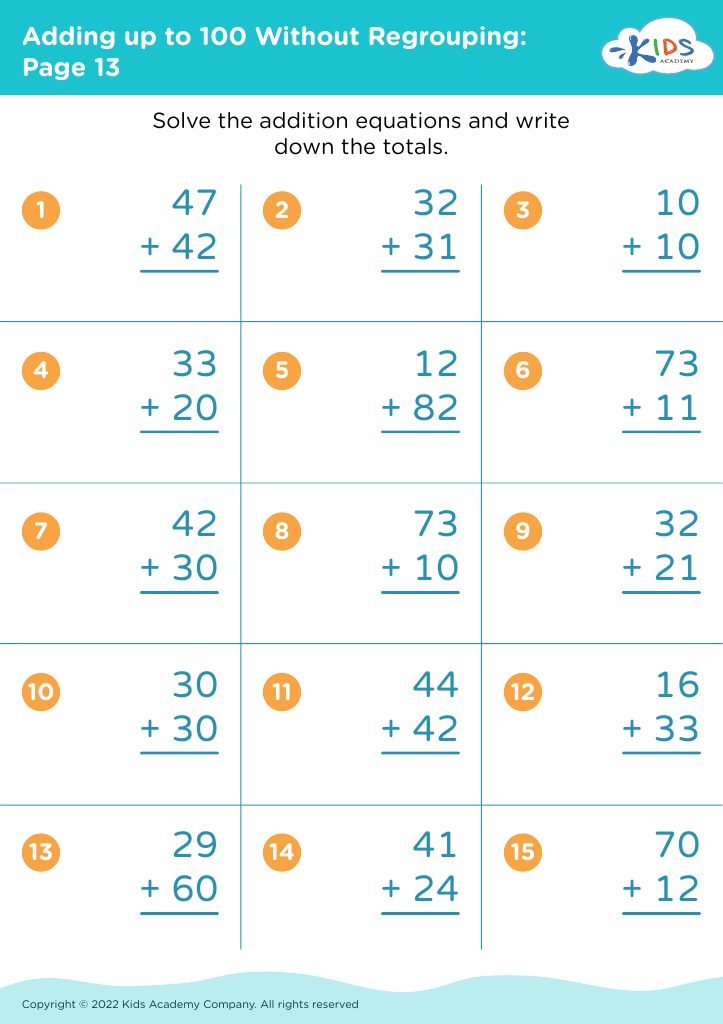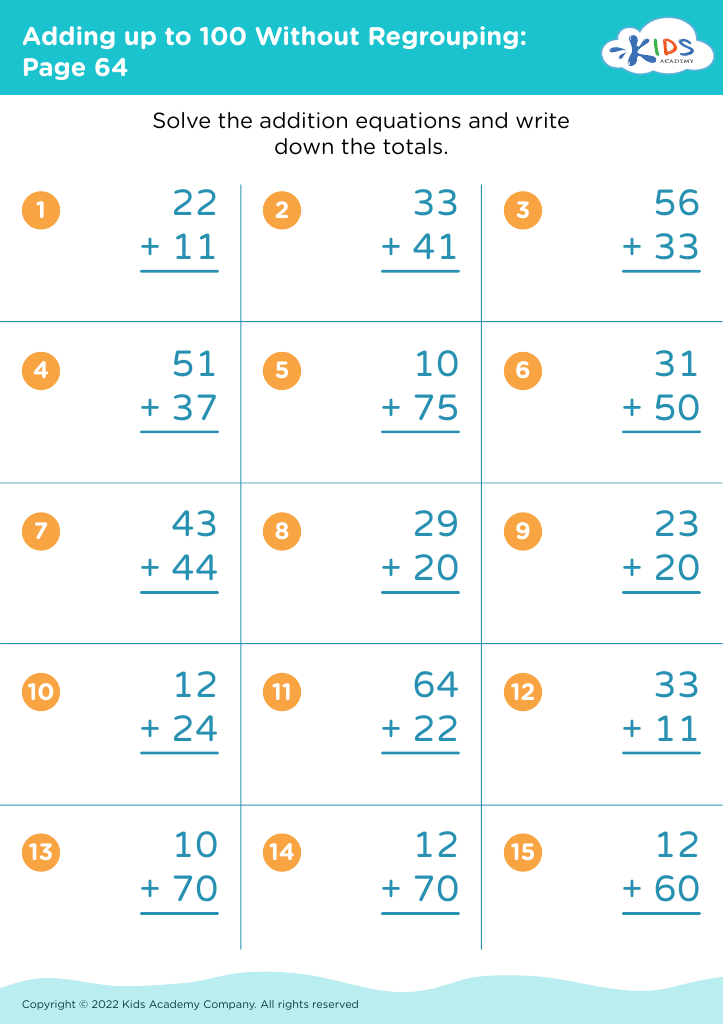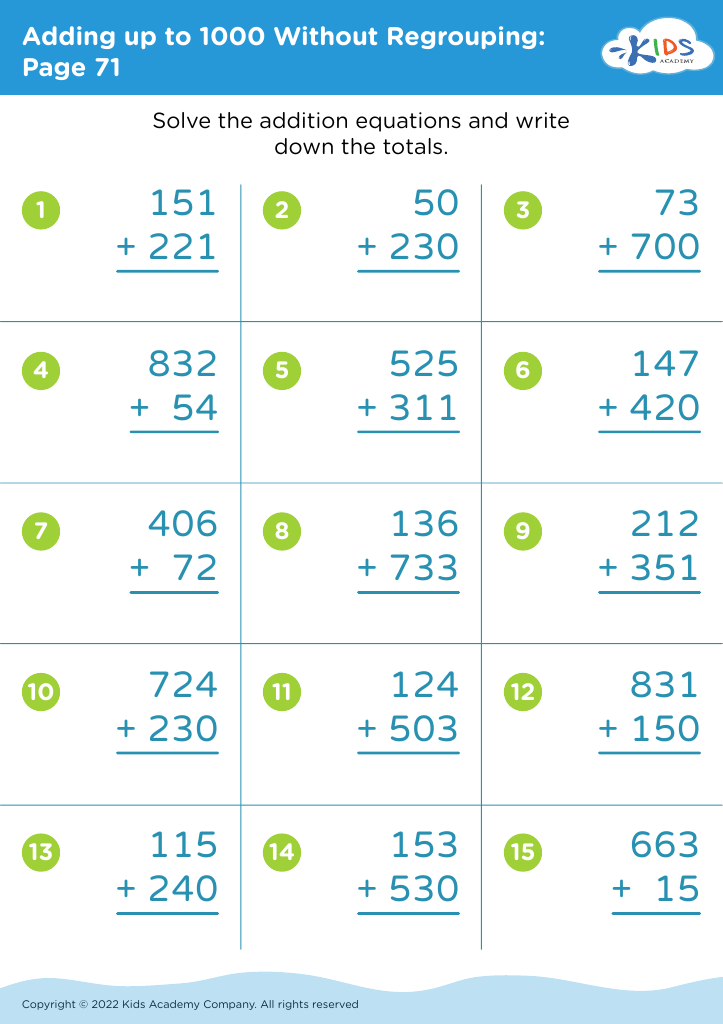Understand sequences Addition & Subtraction Worksheets for Ages 5-8
5 filtered results
-
From - To
Unlock your child's mathematical potential with our "Understand Sequences Addition & Subtraction Worksheets" designed specifically for ages 5-8. These engaging, interactive worksheets encourage early learners to grasp the foundational concept of sequences using addition and subtraction. Tailored to suit young minds, they foster critical thinking and problem-solving skills through fun activities and colorful visuals. Your child will learn to recognize patterns, predict outcomes, and develop a strong numeracy foundation in a playful yet educational manner. Perfect for homeschoolers or additional practice, these worksheets will make learning math a delightful adventure! Start building essential math skills today!
Understanding sequences in addition and subtraction is vital for children aged 5-8 as it lays the groundwork for more advanced math concepts. Grasping these fundamental operations not only enhances numeracy skills but also develops logical thinking and problem-solving abilities. When children learn to recognize patterns and sequences, they begin to understand how numbers relate to one another, paving the way for skills such as estimation and mental math.
Moreover, mastering addition and subtraction through sequences instills confidence in young learners. This foundational knowledge encourages a positive attitude toward math, reducing anxiety and fostering a growth mindset. By integrating these skills in daily activities, parents and teachers can facilitate a more engaging learning environment.
Additionally, sequences play a critical role in real-life applications, from telling time and budgeting to planning activities and solving everyday problems. When learners see the connection between math and their environment, they become more motivated and adept in their mathematical journey.
For parents and teachers, emphasizing the understanding of sequences in addition and subtraction is not just about academic success; it's about equipping children with essential life skills and fostering a love for learning, which will serve them purposefully in their academic and personal lives as they grow.



























